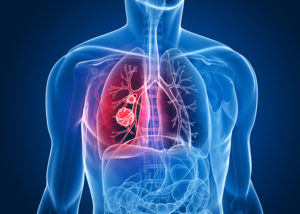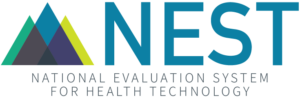Estimating and Validating Diagnostic Cancer Biomarker IVD Test Panel Characteristics and Clinical Utility for Indeterminate Pulmonary Nodule Risk Stratification in Patients with Lung Cancer

- Technology of Interest
Lung Cancer Diagnostic
- Disease Area
Oncology
- Network Collaborators
Vanderbilt, Lahey, OneFlorida
- Duration
12 months
- Status
Complete
Overview
This Test-Case assessed the economic feasibility, clinical utility and medical validity of a blood-based in vitro diagnostic device (IVD) biomarker test panel (Class II/Class III) for risk stratification of suspicious lung nodules using real-world data (RWD). The non-invasive blood-based IVD test panel is being developed to stratify indeterminate pulmonary nodules (IPNs) into high or low risk, with the aim to diagnose lung cancer earlier while minimizing harm from unnecessary invasive tests. Patients with high-risk IPNs (>80% cancer risk) would undergo invasive testing, while low-risk patients (<15%) would be followed only with low dose-CT scan.
Currently, there are no U.S. Food and Drug Administration (FDA) approved, cleared, or authorized blood tests to diagnose lung cancer in patients with IPNs, nor is there an understanding of the clinical utility necessary for a test to provide meaningful impact in the healthcare community. Thus, this project used a combination of RWD from electronic health records (EHR) within the NESTcc Research Network and simulation to:
- Identify individuals through EHRs who have IPNs suspicious for lung cancer
- Identify the patient and nodule characteristics necessary to estimate lung cancer risk, and
- Determine the clinical effort necessary to achieve a lung cancer diagnosis.
To translate these results into device development, this project performed a validation study in a small retrospective review of a prospectively collected sample set of IPN nodules from patients with suspicious IPNs. In partnering with NESTcc, the three collaborators contributed cohorts who have diversity in their geography and lung cancer risks, as well as internationally recognized local expertise in lung cancer biomarker validation. This diversity allowed for robust discovery and validation of the proposed early lung cancer biomarker and is unique to the NESTcc collaborative.
RWE² PRESENTATION
View the recording of this Test-Case presentation from the September 2021 RWE² event.
